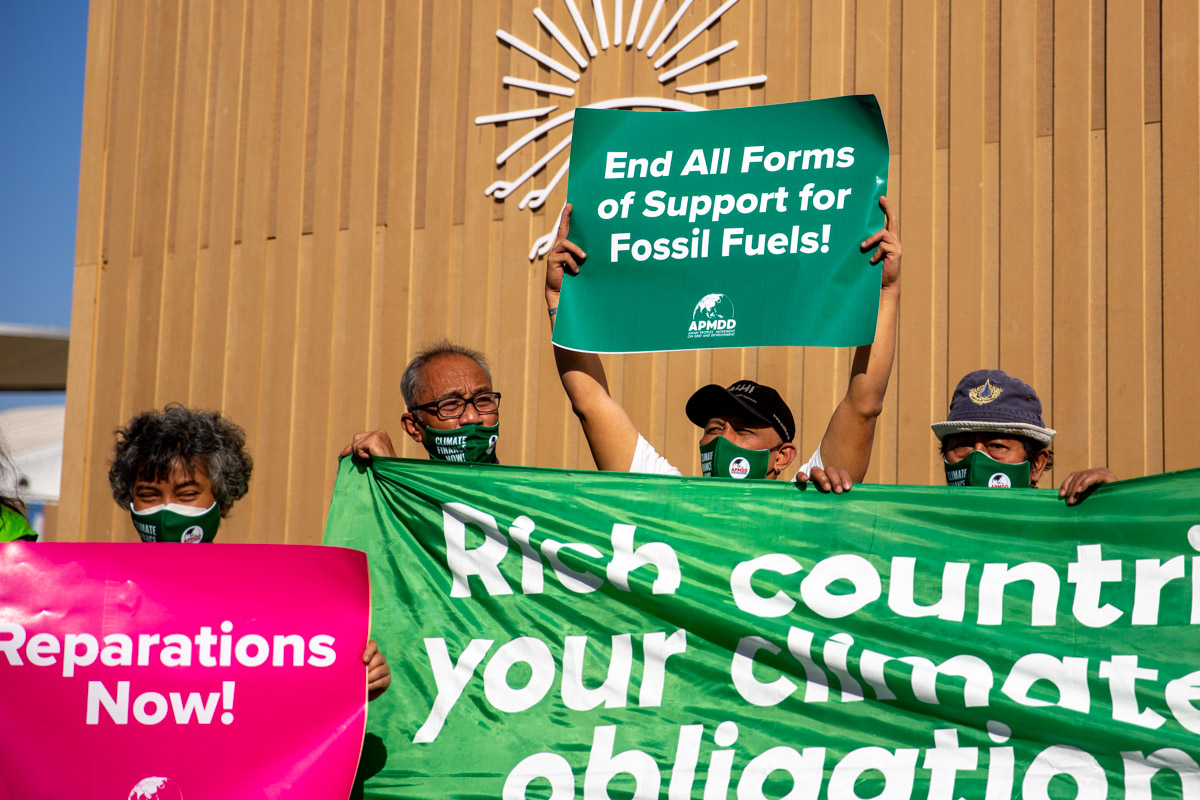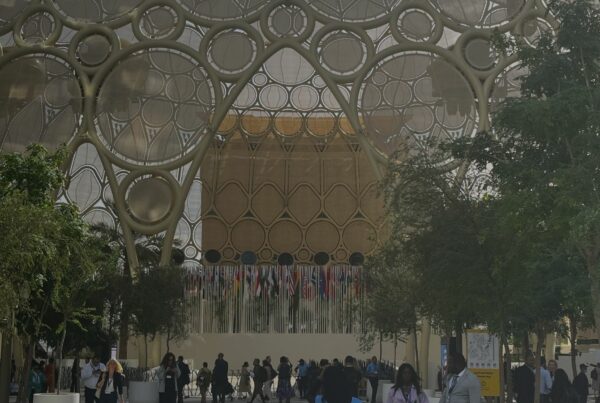On fossil fuels, the view from climate scientists is unequivocal: the world must leave remaining resources in the ground if it is to stand a chance of keeping global temperature rise within 1.5°C. However, as yet undeveloped African oil and gas reserves have been estimated at 5,000 billion cubic metres (bcm) – a tempting amount for a continent mired in poverty and huge economic problems stemming from the Covid pandemic, with +20 countries in debt distress.
As such, there is a growing debate within Africa over the extent to which countries should exploit these reserves. This has been catalysed by suggestions of support from US and European investors, keen to source new supplies in the light of Russia’s war on Ukraine and the collapse of traditional supplies. Governments including those of Poland and Germany have visited African states to negotiate deals.
At COP27, a technical committee of the African Union is pushing the launch of an “African Common Position on Energy Access and Transition”. The position states that “oil and coal will continue to play crucial role” in the continent’s energy mix in the short- and medium-term, and that fossil gas will feature for the long-term as well.
The committee argues that this is a solution to African’s energy access challenges. More than 600 million people across the continent still have no access to electricity, while more than 80% of the sub-Saharan African population lack clean cooking technologies.
Who benefits?
However, the history of extractive industries across the continent suggests it is not Africans who benefit. The vast majority of investment is absorbed by infrastructure aimed at export rather than power for African communities.
Companies in Africa control just 33% of the continent’s projected oil and gas production. The majority is controlled by companies from developed countries, with TotalEnergies, Eni, ExxonMobil and BP accounting for a third.
Most African fossil fuel producing countries have not seen accelerated development from their resources. Fossil fuel pricing is largely decided by global markets, leaving it out of reach for the majority of people on the continent. Nigeria is a prime example – it is a major producer of both oil and gas, yet has the world’s highest energy deficit.
Extraction hands obscene profits for transnational corporations and national governments. Meanwhile, the costs are levied on communities and the environment – pollution from oil spills and gas flares has dragged life expectancy down to just 41 years in the Niger Delta.
In addition, African countries with fossil fuel reserves risk stranded assets by the mid-2030s. Their export markets are already pivoting to renewables, and Brussels’ RePowerEU plans will see gas consumption cut 50% by 2030. Germany is targeting 80% renewable power by 2030, and a net zero power sector by 2035.
Redouble on renewables
Africa can still develop energy for the masses if it resists the temptation of gas investment from the west. There is 59,000 GW of untapped wind potential in Africa – enough to power the continent’s energy demand 250 times over.
The continent is home to 60% of the world’s best solar resources, but currently holds only 1% of solar PV capacity, according to the International Energy Agency. However, there is a lack of investment in clean energy in Africa – a legitimate source of anger among African nations, who compare the paltry levels spent so far with Europe’s huge spend on Covid vaccines through 2020-2022, and vast sums in military aid handed to Ukraine.
The IEA estimates that Africa’s clean energy transition needs at least a doubling of investment this decade, while Friends of the Earth Africa has calculated that $130bn each year will be required for Africa to achieve 100% renewable energy for all by 2050. Instead of negotiating with western leaders to supplement their gas shortage, African leaders should be bargaining hard to unlock flows of renewable energy investments.
Investment in renewables brings more than double the jobs of that in fossil fuels, and would provide energy for Africans rather than exporting it to industrialised nations. Africa could lead the world in sustainable energy, and develop energy sovereignty and security for its peoples.
African leaders should resist the West’s dash for fossil gas, and instead push for significant and non-debt creating climate finance to escape the cycle of debt traps and inequality extractivism has previously bought their nations. COP27 is a pivotal moment that should not be used to lock Africa into a bleak fossil fuel future.





